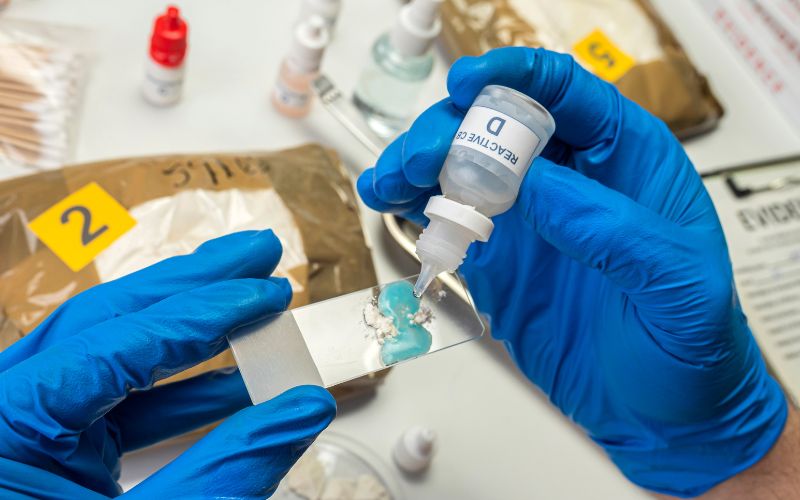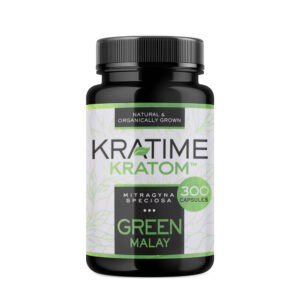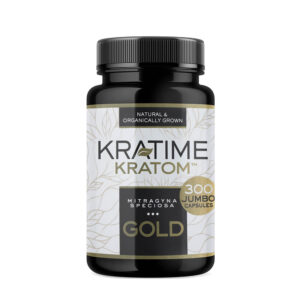Everything You Need to Know About Drug Testing for Kratom Use
When it comes to drug testing, many individuals may ask themselves, “Does kratom show up on a drug test?”, or ” Can it even be detected?” Kratom has gained popularity in recent years for its potential therapeutic effects, but its association with opioids raises questions about its detectability in drug tests. In this article, we will explore whether kratom shows up on a drug test, the factors affecting its detection, and other crucial information to help you make informed decisions.
What is Kratom?
Kratom, scientifically known as Mitragyna speciosa, is a tropical evergreen tree native to Southeast Asia. It belongs to the coffee family and has been used for centuries in traditional medicine. Kratom leaves contain alkaloids, such as mitragynine and 7-hydroxymitragynine, which interact with opioid receptors in the brain, producing stimulating or sedating effects depending on the dosage.
Kratom Alkaloids
The presence of alkaloids in kratom is a significant factor in its detection during drug testing. Kratom alkaloids can be identified through specific testing methods, but they may not always be included in standard drug panels. This variability in testing procedures plays a crucial role in determining whether kratom will show up on a drug test.
Drug Testing Methods

Various drug testing methods are commonly used, including urine, blood, saliva, and hair tests. Each method has its own detection window and sensitivity to different substances. Understanding the characteristics of these tests is essential to grasp how kratom detection may occur.
Does Kratom Show up on a Drug Test?
The answer to whether kratom shows up on a drug test depends on the specific test being conducted. In most standard drug tests, such as urine tests, kratom is not detected because it is not one of the substances targeted in these tests. However, it is essential to note that specialized kratom drug tests do exist and can identify the presence of kratom alkaloids.
Factors Affecting Kratom Detection
Several factors can influence the detectability of kratom in drug tests. These factors include the type of test conducted, the specific alkaloids present in the kratom product consumed, the dosage and frequency of kratom use, and individual metabolic variations. Understanding these factors can provide insights into the likelihood of kratom detection in drug tests.
Types of Drug Tests
Different drug tests have varying detection windows and sensitivities. Urine tests are the most common type of drug test and typically have shorter detection windows. Blood tests are more invasive but offer a shorter detection period. Saliva tests are non-invasive and detect recent kratom use, while hair tests have the longest detection window.
Urine Tests and Kratom Detection
Urine tests are the most common form of drug testing due to their convenience and cost-effectiveness. However, standard urine drug tests do not typically detect kratom alkaloids. Kratom metabolites may be excreted through urine but are unlikely to trigger a positive result in standard drug screens.
Blood Tests and Kratom Detection
Blood tests are less common for routine drug screening and are typically used in specific situations such as accident investigations or medical emergencies. Since kratom alkaloids are not part of standard drug panels, they are unlikely to be detected in blood tests.
Saliva Tests and Kratom Detection
Saliva tests are gaining popularity as an alternative to urine tests due to their non-invasive nature and shorter detection window. While kratom alkaloids can be present in saliva, they are not typically included in standard saliva drug tests.
Hair Follicle Tests and Kratom Detection
Hair follicle tests have the longest detection window among drug testing methods, potentially spanning several months. However, kratom alkaloids are unlikely to be targeted in hair follicle tests, as they are not commonly included in standard panels.
Kratom’s Legality and Drug Testing
The legal status of kratom varies across different jurisdictions, which can impact drug testing policies. In regions where kratom is illegal, it is unlikely to be included in routine drug screenings. However, in areas where kratom is legal, employers or organizations may choose to include it in their testing protocols.
Potential Risks and Side Effects
While kratom may offer potential benefits, it is crucial to be aware of its risks and side effects. Kratom consumption can lead to various adverse effects, including nausea, constipation, drowsiness, increased heart rate, and even dependence or addiction with prolonged use. Understanding these risks is essential when considering kratom use and drug testing.
Mitigating Kratom Detection
For individuals concerned about kratom detection in drug tests, several strategies may help minimize the likelihood of detection. These include refraining from kratom use before drug testing, discussing kratom consumption with healthcare professionals to explore alternative treatment options, and understanding the policies and regulations of organizations regarding kratom use.
Conclusion
In conclusion, the detectability of kratom in drug tests depends on the specific test conducted and the inclusion of kratom in the testing panel. Standard drug tests do not typically identify kratom alkaloids, but specialized tests are available. Factors such as the type of test, alkaloid variations, dosage, and individual metabolism can influence kratom detection. It is crucial to consider the potential risks and side effects associated with kratom use and to be aware of relevant laws and regulations.
FAQs
1. Is kratom legal?
The legality of kratom varies across different jurisdictions. It is important to familiarize yourself with the specific laws in your region before using kratom.
2. Can kratom cause a false positive on a drug test?
In standard drug tests, kratom is not likely to cause a false positive. However, specialized kratom tests may detect its alkaloids.
3. How long does kratom stay in your system?
The duration kratom remains detectable in the body depends on various factors, including the type of drug test used. In general, kratom can be detected for up to several days.
4. Can kratom help with pain management?
Kratom has been used traditionally for pain relief. However, it is important to consult with a healthcare professional for appropriate guidance and to explore other treatment options.
5. Where can I find reliable information about kratom?
Reputable sources such as government health agencies, scientific research publications, and qualified healthcare professionals can provide reliable information about kratom.








